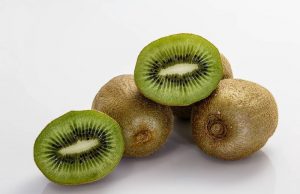Unveiling the Nutritional Profile
Does Eggplant Contain Protein? A Nutritional Breakdown
Eggplant, also known as aubergine, is a versatile vegetable enjoyed in cuisines across the globe. While many appreciate its flavor and texture, others often ask whether it contributes meaningfully to protein intake. In this article, we explore eggplant’s protein content, its broader nutritional value, and how to include it in a balanced, high-protein diet.


How Much Protein Does Eggplant Have?
Eggplant contains some protein, but it’s not considered a high-protein food. In one cup of cooked eggplant, you’ll find around 0.8 grams of protein. This amount is low when compared to beans, legumes, or animal-based proteins.
However, it still plays a supporting role in your daily intake. For those following plant-based diets, combining eggplant with other protein-rich foods is essential. In doing so, you can enjoy eggplant’s benefits while meeting your nutritional needs.
The Full Nutritional Value of Eggplant
Although eggplant falls short in protein, it offers a rich array of nutrients. Including eggplant in your meals provides dietary fiber, antioxidants, and several important vitamins and minerals.
1. Dietary Fiber
Eggplant delivers around 2.5 grams of fiber per cup, which helps support healthy digestion. As a result, it promotes regular bowel movements and a balanced gut microbiome.
2. Low-Calorie Food
With only 35 calories per cup, eggplant is an excellent food for those watching their calorie intake. Therefore, it’s ideal for individuals aiming to lose or maintain weight without sacrificing flavor or satisfaction.
3. Rich in Antioxidants
Eggplant’s purple skin contains anthocyanins, powerful antioxidants that help neutralize free radicals. Consequently, they may reduce inflammation and protect cells from long-term damage.
4. Vitamins and Minerals
Eggplant is a modest source of several essential nutrients. It contains vitamin C, vitamin K, B vitamins like folate, and minerals such as potassium and manganese. These nutrients contribute to energy production, immune support, and muscle function.
Benefits of Including Eggplant in Your Diet
Though not a protein-rich vegetable, eggplant provides multiple health benefits. Including it in your diet can enhance your overall well-being in several ways.
Supports Heart Health
Thanks to its fiber, antioxidants, and potassium content, eggplant supports cardiovascular health. Moreover, it may help lower cholesterol and regulate blood pressure levels.
Aids in Weight Management
Because it is both low in calories and high in fiber, eggplant increases satiety. In other words, it helps you feel full for longer, which can reduce total calorie intake throughout the day.
Promotes Healthy Skin
Eggplant’s vitamin C content supports collagen production. Consequently, it helps maintain firm, youthful skin and may improve skin elasticity over time.
May Lower Cancer Risk
Eggplant’s antioxidants—especially nasunin, found in the skin—protect cells from oxidative stress. Over time, this protection may reduce the risk of certain types of cancer.
How to Include Eggplant in a High-Protein Diet
Although eggplant isn’t high in protein, pairing it with protein-rich foods makes it easy to include in balanced meals. Here are some simple and tasty ideas.
Eggplant and Lentil Stew
Lentils are protein-dense and combine well with eggplant in stews. Together, they form a hearty dish that’s rich in both protein and fiber.
Eggplant Parmesan with Chicken
Adding grilled chicken to your eggplant Parmesan boosts the meal’s protein content. In addition, the combination provides balanced nutrition and satisfying texture.
Grilled Eggplant with Tofu
Tofu is high in plant-based protein. When grilled with eggplant, it creates a delicious, nutrient-dense vegetarian meal suitable for any diet.
Eggplant and Quinoa Salad
Quinoa, a complete plant protein, blends beautifully with roasted eggplant and vegetables. As a result, you get a refreshing, high-protein salad that’s both filling and flavorful.
Final Thoughts
Eggplant may not be rich in protein, yet it still brings a wealth of nutritional benefits to the table. From antioxidants and vitamins to its low calorie count and fiber, eggplant supports heart health, skin vitality, and digestive function. Therefore, when combined with protein-rich ingredients, it becomes an excellent addition to any diet. Whether you’re eating plant-based or just seeking variety, eggplant remains a valuable and versatile food.



